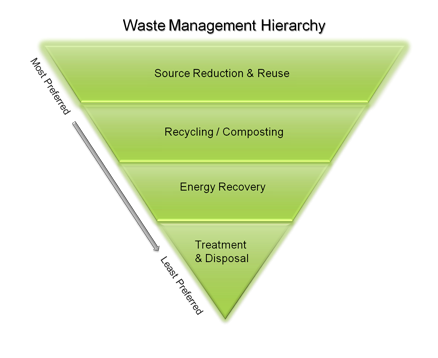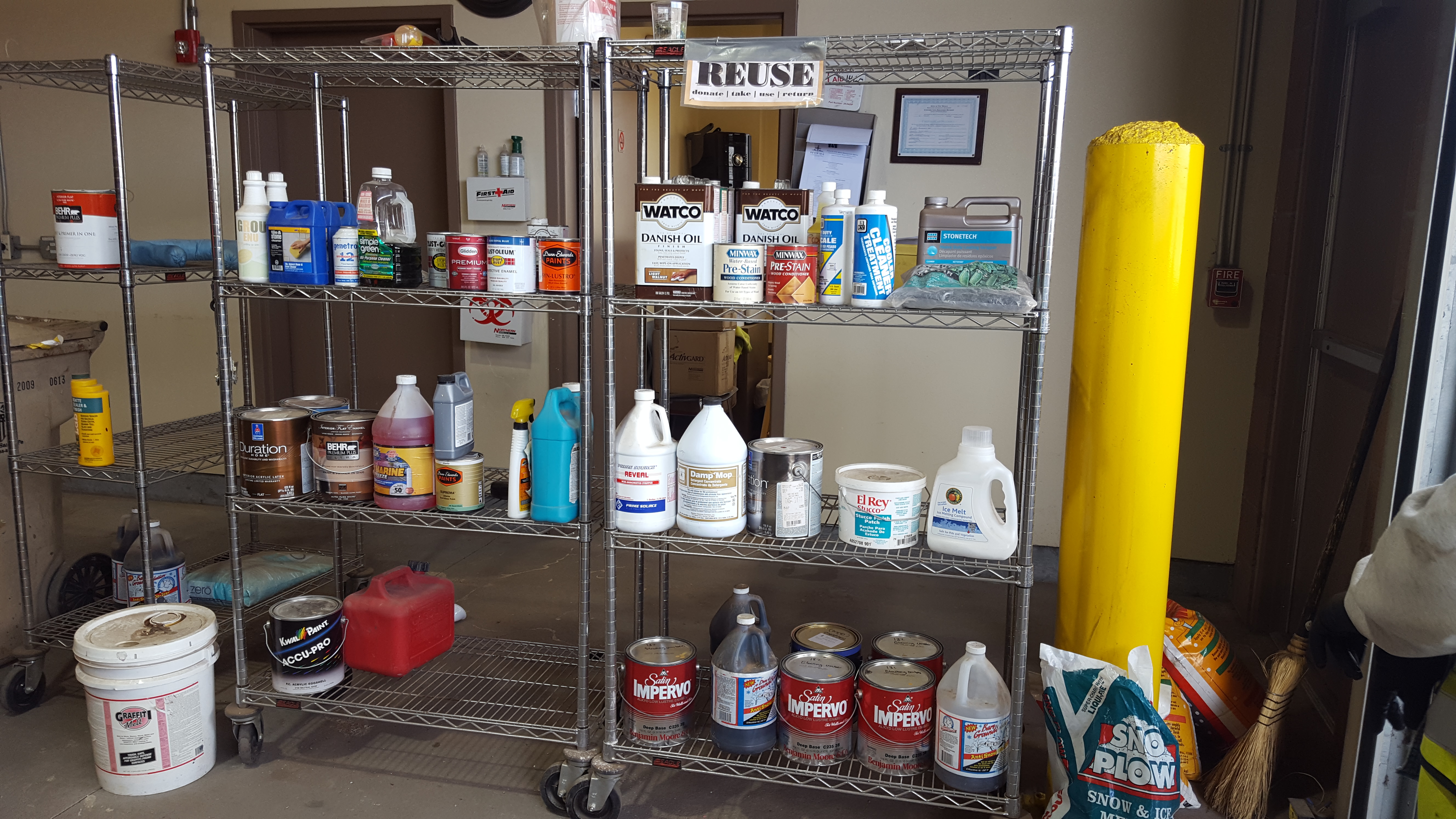
EPA
Household Hazardous Waste (HHW) Collection Center Operating Hours
The HHW Collection Center located at Buckman Road Recycling and Transfer Station (BuRRT) is open Fridays & Saturdays, every week from 8:00 a.m. – 4:45 p.m. The only exception to this schedule is if a holiday falls on Friday or Saturday which causes the entire facility to be closed. See our holiday schedule Here.
What is Household Hazardous Waste (HHW)?
HHW is a leftover household product that has a label or ingredients that contains any of the following warnings:
- Flammable
- Ignitable
- Corrosive
- Reactive
- Toxic
These warnings can be found in anything from drain cleaners, motor oil, to pesticides.
Do not mix motor oil with water. This contaminates oil.
Where can I take my Household Hazardous Waste?
HHW can be properly disposed of at the Household Hazardous Waste Collection Center, located at BuRRT is open Fridays & Saturdays, every week from 8:00 a.m. – 4:45 p.m.
Please do not leave your HHW at the center when it is closed. It cannot be properly handled when the center is not open and it can be hazardous to employees and the environment.
Other HHW, like batteries, might also be accepted at participating retailers. For a complete list of where you can take certain HHW materials and to see what the BuRRT HHW Collection Center accepts, please see the list to the right.
Download the Household Hazardous Waste Brochure to find out how you can properly handle your HHW in Santa Fe.
Scroll down to the bottom of this page for information on smoke detectors.
Why not just put it down the drain?
Disposing HHW down the drain, sewer, or trash can cause chemicals and toxins to pollute our environment, especially our ground water supply which can contaminate our parks, drinking water, farms and more. When HHW is taken to the BuRRT Facility, the waste can be properly disposed or better yet recycled and reused. Recycling HHW conserves resources and energy that would otherwise be expended in the production of more hazardous materials.
To learn more, see the EPA’s Household Hazardous Waste Website
HHW Reuse Program
The BuRRT HHW Facility has a reuse program available to the public. If you have an HHW item that is in good reusable condition, you can put it in our reuse area. Or, if you looking for just a little bit of some type of chemical or cleaner, there is a good chance you might find it at our HHW Reuse Center* for FREE!
*Caution: Take Materials at Your Own Risk. The BuRRT household hazardous waste collection facility (HHWCF) accepts materials from Santa Fe City and County residents for a small charge. The Santa Fe Solid Waste management agency pays ACT (advance chemical transport) to properly dispose the HHW collected at the HHWCF. The SFSWMA and ACT make no representation about the integrity, safety, usability or effectiveness of the materials you take. Furthermore, if you accept materials from this Program, you do so at your own risk.
Be safe! Always label your household hazardous waste.
Smoke Detectors
There are basically two kinds of smoke detectors: photoelectric and ionization.
Photoelectric smoke alarms are generally more responsive to fires that begin with a long period of smoldering (called “smoldering fires”).
How they work: Photoelectric-type alarms aim a light source into a sensing chamber at an angle away from the sensor. Smoke enters the chamber, reflecting light onto the light sensor; triggering the alarm. (Source) These type of detectors tend to be from the mid-1990’s or earlier.
See the National Fire Protection Association public education site for more detailed information on Ionization versus Photoelectric .
Ionization-Based Smoke Detectors
Ionization detectors contain a small amount of Americium 241, a radioactive isotope. When in use, these detectors are perfectly safe, as the radioactive material is shielded by a metal chamber inside the device. If dismantled, however, the radioactive material can become exposed. For this reason, you should never try to take apart an old ionization detector.
To determine whether or not your detector is an ionization type, look on the back; it should either have the letter “I” or say ionization.
So how do I dispose of an ionization detector?
You can also try to send your old detector back to the original manufacturer. Locate the brand name and/or address on the back of the device, or find the information in the user’s manual. After removing the battery, send the whole unit back intact (do not try to disassemble!) with a note indicating that the device is intended for disposal.
Some of the major smoke detector manufacturers include:
- American Sensors/Dicon
- Curie Environmental Services— 4020 Vassar Drive NE, Suite D
- First Alert/BRK
- Honeywell, Inc.— Dock 4-MN10-3860, 1985 Douglas Drive
- Kidde
- System Sensor
- USI Electric/Universal— 11407 Cronhill Drive, Suite A, Attention: Disposal Dept.
- UTC Fire and Security
What about recycling options?
Currently, Curie Environmental Services is the first and only company in the United States to offer a mail-back recycling program for ionization smoke detectors. Interested individuals should contact Curie for mailing instructions and pricing information.


